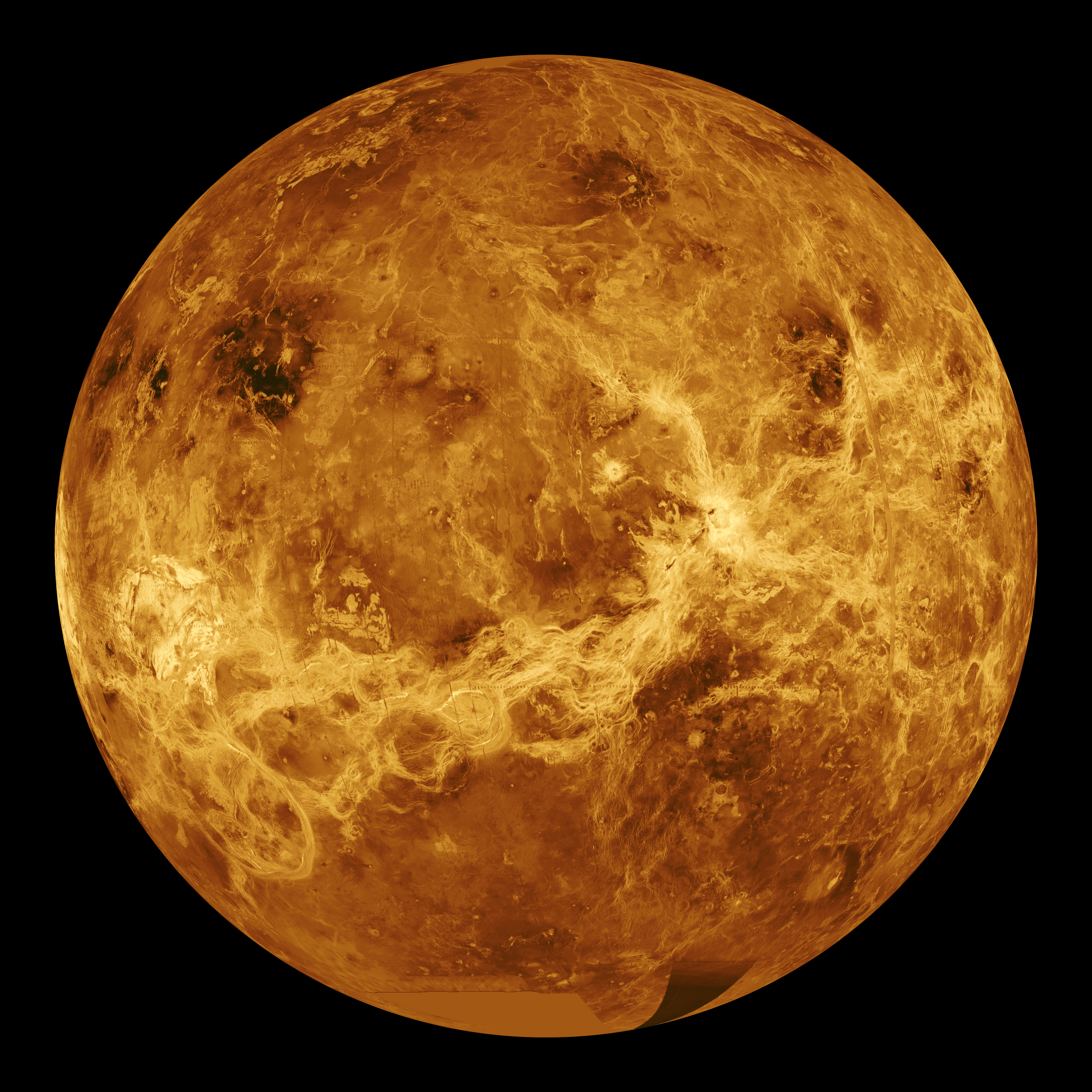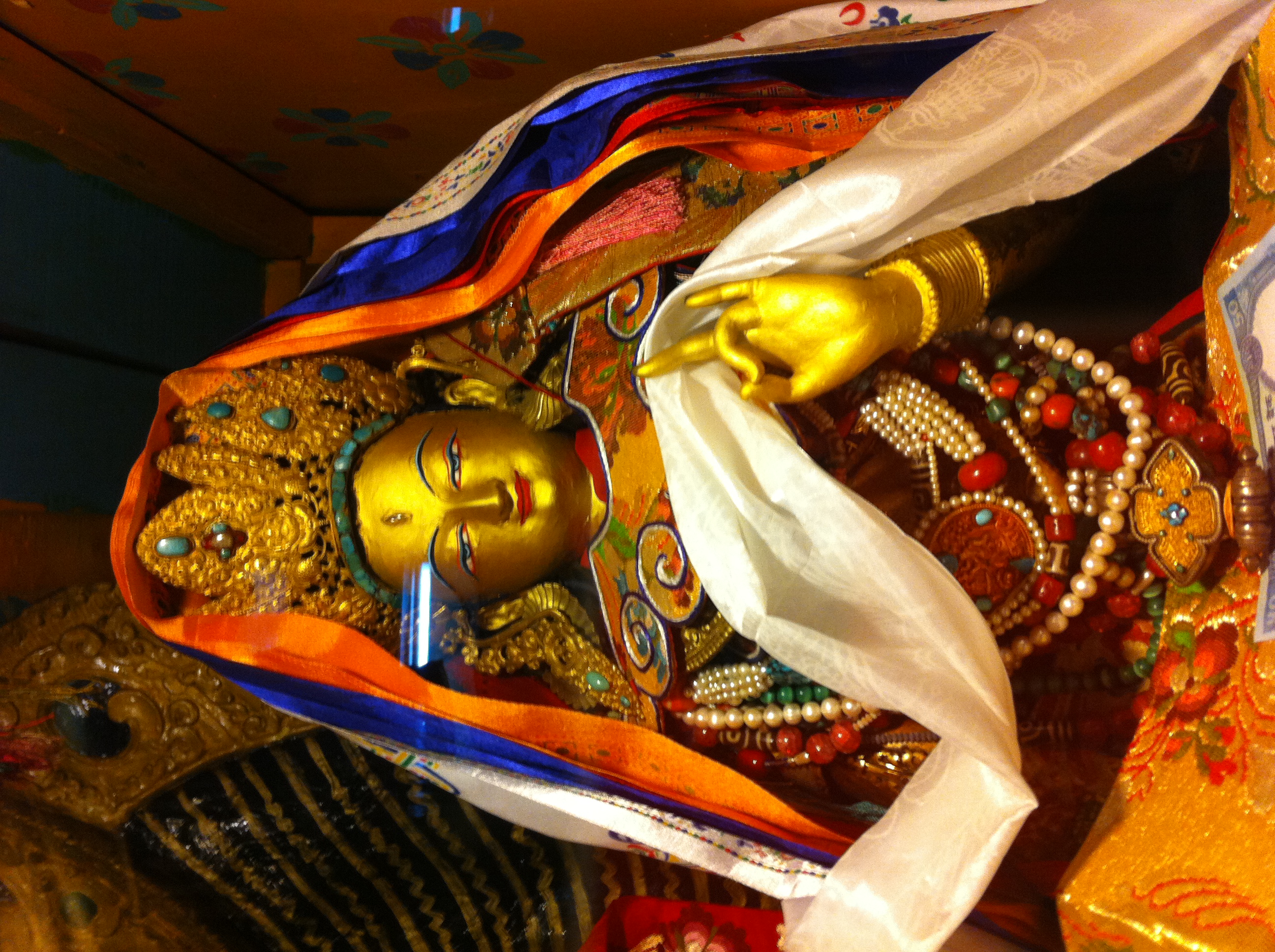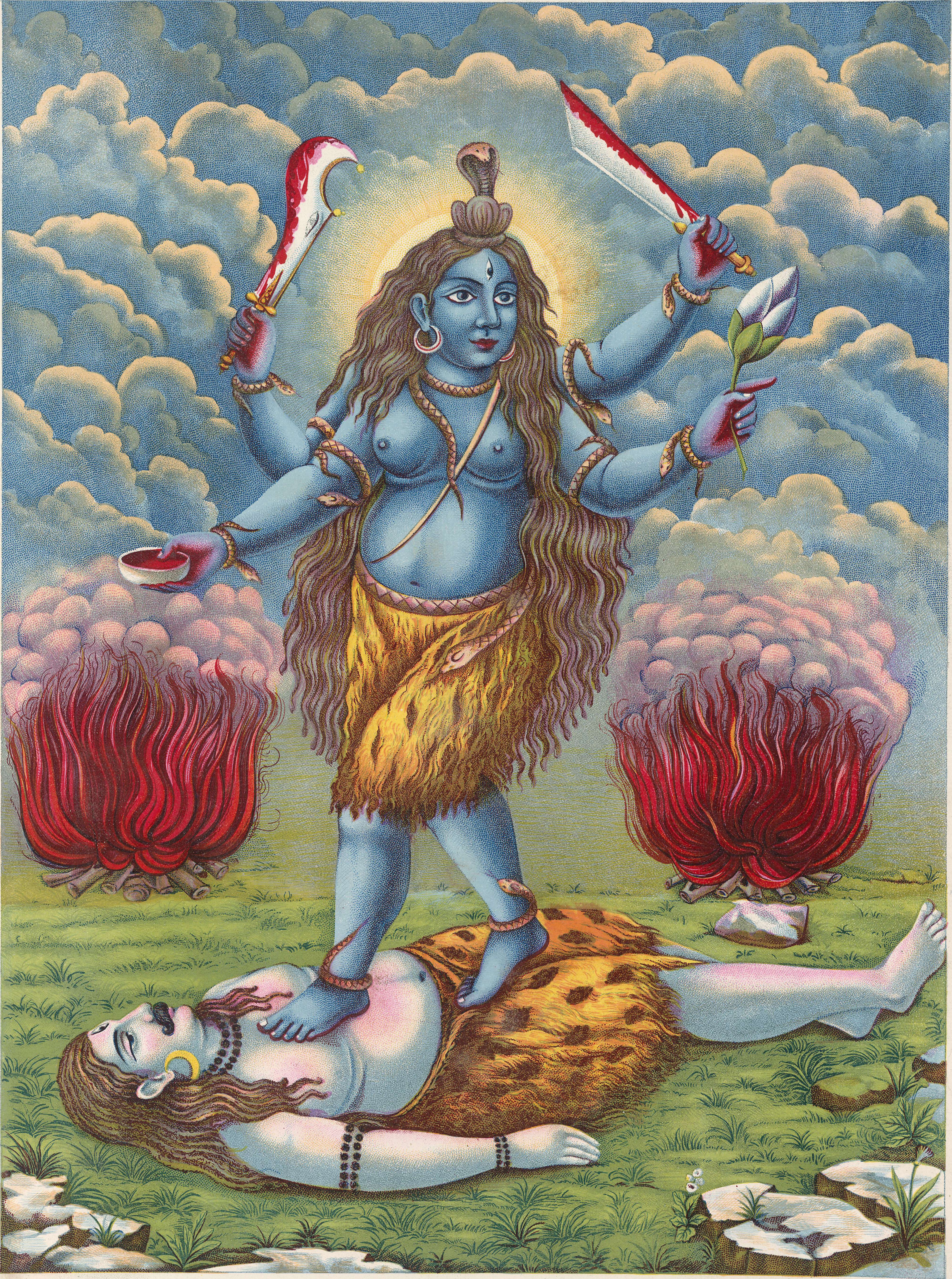|
Tara (Hindu Goddess)
is the Hindu goddess of felicity and sanguineness. She is also the consort of Hindu god Brihaspati, the god of planet Jupiter. According to some Puranas, Tara sired or mothered a child named Budha, the god of Mercury through Chandra and had a son named Kacha through Brihaspati. Story Tara was the wife of Brihaspati, the guru of Devas. According to historians, it is mentioned as her husband spent most of his time with the problems and matters of Devas, she felt being ignored by her husband. One day, Chandra, the moon god visited Brihaspati. There he saw Tara and was captivated by her beauty. Chandra used Hypnosis on Tara. Brihaspati was infuriated and demanded Chandra to return his wife. Chandra told Brihaspati that Tara was happy and satisfied with him. He told that how can an old man be husband of a young woman. This made Brihaspati more annoyed and he warned Chandra for battle. Indra and other Devas gathered to fight a war. Chandra was not ready to give Tara back and he ... [...More Info...] [...Related Items...] OR: [Wikipedia] [Google] [Baidu] |
Surendrapuri
Surendrapuri is a religious tourism destination located near Hyderabad, Telangana, India in the Yadadri Bhuvanagiri district. The 17-acre religious complex includes the Kunda Satyanarayana Kaladhamam - India's first mythological museum, Panchamukha Hanumadeeswara Devasthanam (''Hindu temple)'', Navagraha temples, Nagakoti idol, and Surendrapuri’s iconic two-sided Panchamukha Hanuman-Shiva statue. Surendrapuri was designed and built by Satyanarayana Kunda and it was opened to the public from May, 2003. It is located 10 km from the Bhuvanagiri Railway Station and 2 km from the Yadadri Bus Terminal. Other popular tourist attractions near Surendrapuri are Yadadri’s Lakshmi Narasimha Temple, Bhongir Fort, and Kolanupaka Temple. Kunda Satyanarayana Kaladhamam ''Kunda Satyanarayana Kaladhamam'', named after its creator, Satyanarayana Kunda, is an Indian mythological museum, inaugurated by the former Governor of Andhra Pradesh, Narayan Dutt Tiwari, in February, 2009 ... [...More Info...] [...Related Items...] OR: [Wikipedia] [Google] [Baidu] |
Shukra
Shukra (Sanskrit: शुक्र, IAST: ) is a Sanskrit word that means "clear" or "bright". It also has other meanings, such as the name of an ancient lineage of sages who counselled Asuras in Vedic history. In medieval mythology and Hindu astrology, the term refers to the planet Venus, one of the Navagrahas. Hinduism In Hinduism, Shukra is one of the sons of Bhrigu, of the third Manu, one of the ''saptarishis''. He was the guru of Daityas and Asuras, and is also referred to as Shukracharya or Asuracharya in various Hindu texts. In another account found in the ''Mahabharata'', Shukra divided himself into two, one half becoming the fount of knowledge for the devas (gods) and the other half being the knowledge source of the asuras (demons). Shukra, in the Puranas, is blessed by Shiva with Sanjeevini Vidhya after worshipping and impressing Shiva with his devotion. Sanjeevini Vidhya is the knowledge that raises the dead back to life, which he used from time to time to restor ... [...More Info...] [...Related Items...] OR: [Wikipedia] [Google] [Baidu] |
Hindu Goddesses
Hindu deities are the gods and goddesses in Hinduism. The terms and epithets for deities within the diverse traditions of Hinduism vary, and include Deva, Devi, Ishvara, Ishvari, Bhagavān and Bhagavati. The deities of Hinduism have evolved from the Vedic era (2nd millennium BCE) through the medieval era (1st millennium CE), regionally within Nepal, Pakistan, India and in Southeast Asia, and across Hinduism's diverse traditions.Nicholas Gier (2000), Spiritual Titanism: Indian, Chinese, and Western Perspectives, State University of New York Press, , pp. 59-76Jeaneane D. Fowler (2012), The Bhagavad Gita, Sussex Academic Press, , pp. 253-262 The Hindu deity concept varies from a personal god as in Yoga school of Hindu philosophy, to thirty-three major deities in the Vedas, to hundreds of deities mentioned in the Puranas of Hinduism. Illustrations of major deities include Vishnu, Lakshmi, Shiva, Parvati, Brahma and Saraswati. These deities have distinct and complex personalit ... [...More Info...] [...Related Items...] OR: [Wikipedia] [Google] [Baidu] |
Tara (Buddhism)
Tara ( sa, तारा, ; bo, སྒྲོལ་མ, ), Ārya Tārā, or Shayama Tara, also known as Jetsun Dölma (Tibetan: ''rje btsun sgrol ma'') is an important figure in Buddhism, especially revered in Tibetan Buddhism. She appears as a female bodhisattva in Mahayana Buddhism, and as a female Buddha in Vajrayana Buddhism. She is known as the "mother of liberation", and represents the virtues of success in work and achievements. She is known as ''Duōluó Púsà'' (多羅菩薩) in Chinese Buddhism, and as ''Tara Bosatsu'' (多羅菩薩) in Japan. Tārā is a meditation deity revered by practitioners of the Tibetan branch of Vajrayana Buddhism to develop certain inner qualities and to understand outer, inner and secret teachings such as karuṇā (compassion), mettā (loving-kindness), and shunyata (emptiness). Tārā may more properly be understood as different aspects of the same quality, as bodhisattvas are often considered personifications of Buddhist methods. There ... [...More Info...] [...Related Items...] OR: [Wikipedia] [Google] [Baidu] |
Tara (Devi)
In Hinduism, the goddess Tara ( sa, तारा, ) is the second of the Dasa (ten) Mahavidyas or "''Great Wisdom goddesses''", and is a form of Adishakti, the tantric manifestation of Parvati. Her most famous centre of worship is the temple and the cremation ground of Tarapith in West Bengal, India. Her three most famous forms are Ekajaṭā, Ugratara, and Nīlasarasvatī (Neelasaraswati or Neela Saraswati or Neelsaraswati). Legends and theology The commonly known origin of Tara is from the 17th chapter of the Rudrayāmala which describes the initial unsuccessful attempts of the brahminical sage Vasiṣṭha in the worship of the deity (his initial locations are usually placed by the ocean or in Kāmākhyā according to the Brahmayāmala) and the subsequent meeting of Vishnu in the form of Buddha in the region of Mahācīna and his eventual success by the means of kaula rites which employ the five makāras of Shaakta kaula tantra. She is also described as the form of the ... [...More Info...] [...Related Items...] OR: [Wikipedia] [Google] [Baidu] |
Praises To The Twenty-One Taras
Praises to the Twenty-One Taras is a traditional prayer in Tibetan Buddhism to the female Bodhisattva Tara ( sa, तारा, ; Tibetan སྒྲོལ་མ, Drolma) also known as Ārya Tārā, or Jetsun Dolma ( Wylie:''rje btsun sgrol ma''). It appears in the Derge Kangyur as "“Offering Praise to Tara through Twenty-One ersesof Homage” ( Wylie: sgrol ma la phyag 'tshal ba nyi shu gcig gis bstod pa)." The prayer is found in all four traditions of Tibetan Buddhism. Each of the twenty-one emanations of Tara has her own name, and a specific mantra with which she is associated, offering protection from various types of fears, harm, and calamities. Translations An early manuscript version, titled ''Twenty-One Hymns to the Rescuer Mother of Buddhas'' (二十一種救度佛母贊), described as an "Imperially commissioned translation of the hymn to the rescuer mother of Buddhas ... in Manchu, Tibetan, Mongolian, and Chinese scripts", was created in the late 18th century by ... [...More Info...] [...Related Items...] OR: [Wikipedia] [Google] [Baidu] |
Nairatmya
Nairātmyā or Dagmema () is a female buddha, the consort of Hevajra in the Hevajra-tantra. The name means "ego-less woman". References See also * Nairatmya - Concept in Buddhism * Sitatapatra * Narodakini *Saraswati *Queen Maya *Hariti *Yakshini *Prithvi *Vajrayogini *Tara (Buddhism) Tara ( sa, तारा, ; bo, སྒྲོལ་མ, ), Ārya Tārā, or Shayama Tara, also known as Jetsun Dölma (Tibetan: ''rje btsun sgrol ma'') is an important figure in Buddhism, especially revered in Tibetan Buddhism. She appears as a f ... {{Buddhism topics Buddhas Dakinis Female buddhas and supernatural beings te:నైరాత్మ్యా ... [...More Info...] [...Related Items...] OR: [Wikipedia] [Google] [Baidu] |
Brahma
Brahma ( sa, ब्रह्मा, Brahmā) is a Hindu god, referred to as "the Creator" within the Trimurti, the trinity of supreme divinity that includes Vishnu, and Shiva.Jan Gonda (1969)The Hindu Trinity Anthropos, Bd 63/64, H 1/2, pp. 212–226. He is associated with creation, knowledge, and the '' Vedas''. Brahma is prominently mentioned in creation legends. In some '' Puranas'', he created himself in a golden embryo known as the Hiranyagarbha. Brahma is frequently identified with the Vedic god Prajapati.;David Leeming (2005), The Oxford Companion to World Mythology, Oxford University Press, , page 54, Quote: "Especially in the Vedanta Hindu Philosophy, Brahman is the Absolute. In the Upanishads, Brahman becomes the eternal first cause, present everywhere and nowhere, always and never. Brahman can be incarnated in Brahma, in Vishnu, in Shiva. To put it another way, everything that is, owes its existence to Brahman. In this sense, Hinduism is ultimately monotheistic or ... [...More Info...] [...Related Items...] OR: [Wikipedia] [Google] [Baidu] |
Shiva
Shiva (; sa, शिव, lit=The Auspicious One, Śiva ), also known as Mahadeva (; ɐɦaːd̪eːʋɐ, or Hara, is one of the principal deities of Hinduism. He is the Supreme Being in Shaivism, one of the major traditions within Hinduism. Shiva is known as "The Destroyer" within the Trimurti, the Hindu trinity which also includes Brahma and Vishnu. In the Shaivite tradition, Shiva is the Supreme Lord who creates, protects and transforms the universe. In the goddess-oriented Shakta tradition, the Supreme Goddess (Devi) is regarded as the energy and creative power (Shakti) and the equal complementary partner of Shiva. Shiva is one of the five equivalent deities in Panchayatana puja of the Smarta tradition of Hinduism. Shiva has many aspects, benevolent as well as fearsome. In benevolent aspects, he is depicted as an omniscient Yogi who lives an ascetic life on Mount Kailash as well as a householder with his wife Parvati and his three children, Ganesha, Kartikeya and ... [...More Info...] [...Related Items...] OR: [Wikipedia] [Google] [Baidu] |
Indra
Indra (; Sanskrit: इन्द्र) is the king of the devas (god-like deities) and Svarga (heaven) in Hindu mythology. He is associated with the sky, lightning, weather, thunder, storms, rains, river flows, and war. volumes/ref> Indra's myths and powers are similar to other Indo-European deities such as Jupiter, Perun, Perkūnas, Zalmoxis, Taranis, Zeus, and Thor, part of the greater Proto-Indo-European mythology. Indra is the most referred deity in the ''Rigveda''. He is celebrated for his powers, and as the one who killed the great evil (a malevolent type of asura) named Vritra, who obstructed human prosperity and happiness. Indra destroys Vritra and his "deceiving forces", and thereby brings rains and sunshine as the saviour of mankind. He is also an important deity worshipped by the Kalash people, indicating his prominence in ancient Hinduism. Indra's significance diminishes in the post-Vedic Indian literature, but he still plays an important role in ... [...More Info...] [...Related Items...] OR: [Wikipedia] [Google] [Baidu] |
Kacha (sage)
Kacha () is a sage featured in Hindu mythology. He is the son of Brihaspati and Tara. The narrative of Kacha is mentioned in the Mahābhārata, the Matsya Purana and the Agni Purana. He is known for learning ''Mṛtasañjīvanī vidyā'' mantra (a hymn for reviving the dead) from his guru Shukra. However, is unable to revive devas due to the curse of Shukra's daughter, Devayani. Legend Kacha is described to be the handsome son of Brihaspati. He is sent by the devas to Shukra's ashrama (spiritual hermitage) to learn about the ''Mṛtasañjīvanī vidyā'' mantra, the knowledge that allows one to restore life after death. Shukra accepts him as his disciple, and the latter accepts the task of offering him a thousand years of service. Devayani is infatuated by the youth, and the two become an inseparable couple. The asuras, however, are suspicious of Kacha's intentions, guessing correctly that he wished to know the secret of the life-restoring mantra. They murder him on tw ... [...More Info...] [...Related Items...] OR: [Wikipedia] [Google] [Baidu] |
Deva (Hinduism)
''Deva'' (; Sanskrit: , ) means "shiny", "exalted", "heavenly being", "divine being", "anything of excellence", and is also one of the Sanskrit terms used to indicate a deity in Hinduism.Monier Monier-Williams, A Sanskrit-English Dictionary” Etymologically and Philologically Arranged to cognate Indo-European Languages, Motilal Banarsidass, page 492 ''Deva'' is a masculine term; the feminine equivalent is '' Devi''. In the earliest Vedic literature, all supernatural beings are called ''Devas''George Williams (2008), A Handbook of Hindu Mythology, Oxford University Press, , pages 90, 112 and '' Asuras''. The concepts and legends evolved in ancient Indian literature, and by the late Vedic period, benevolent supernatural beings are referred to as ''Deva-Asuras''. In post-Vedic Hindu texts, such as the Puranas and the Itihasas of Hinduism, the ''Devas'' represent the good, and the ''Asuras'' the bad. In some medieval works of Indian literature, ''Devas'' are also referred ... [...More Info...] [...Related Items...] OR: [Wikipedia] [Google] [Baidu] |







.jpg)
.jpg)